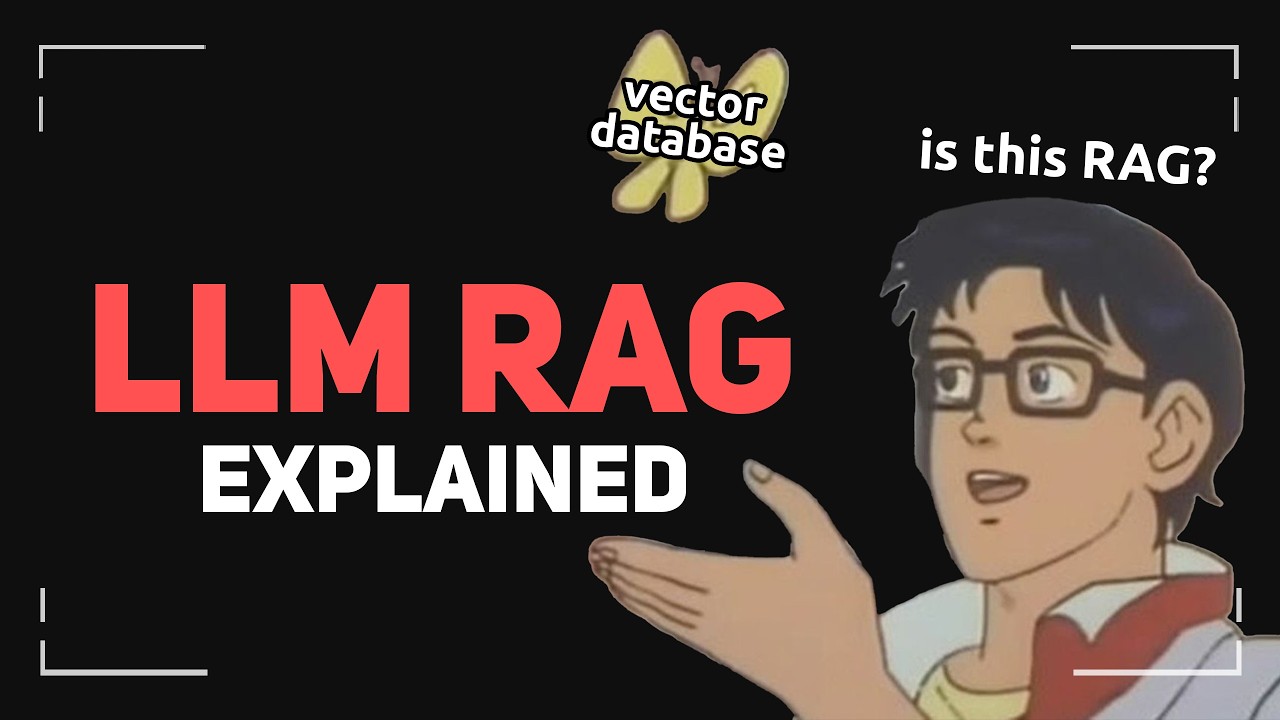The video introduces Retrieval-Augmented Generation (RAG) as a solution to enhance the performance of AI chatbots by allowing them to retrieve accurate information from uncompressed documents, thereby improving response quality. It also highlights the application Think Buddy, which utilizes RAG principles to boost productivity through seamless integration with macOS and various user-friendly features.
The video discusses the limitations of current AI chatbots, particularly their tendency to hallucinate and provide inaccurate information, which makes them less practical for consistent use in work settings. To address these challenges, the concept of Retrieval-Augmented Generation (RAG) is introduced as a short-term workaround that enhances the performance and usability of language models (LMs). RAG allows chatbots to retrieve accurate information from a collection of uncompressed documents rather than relying solely on the compressed data within the neural network, thus improving the quality of responses without the need for extensive training.
The RAG process is broken down into three main stages: indexing, retrieval, and generation. In the indexing stage, documents are divided into meaningful chunks and stored in a vector database for easy retrieval. The retrieval stage involves analyzing user input to identify relevant data, utilizing semantic similarity measurements to find the most pertinent information. Finally, in the generation stage, the LM uses the retrieved content along with the user input to formulate coherent and contextually relevant responses.
Despite its advantages, RAG is considered a short-term solution due to its complexity and potential for failure at various stages. The video emphasizes that while RAG introduces more variables that can affect quality, it also opens up new avenues for research and application. The current meta for RAG includes advancements in indexing, such as using trainable embedding models and knowledge graphs to improve the retrieval process and ensure that context is preserved in the responses generated by the LM.
The video also highlights the evolution of RAG techniques, including the use of hybrid search methods and reranking models to enhance the accuracy of retrieved information. These innovations aim to minimize hallucinations and improve the relevance of responses by filtering out irrelevant results. Additionally, the integration of web search capabilities allows for the retrieval of time-sensitive information, further enhancing the chatbot’s utility.
Finally, the video introduces a specific application called Think Buddy, which leverages RAG principles to boost productivity. Think Buddy combines multiple language models and offers deep integration with macOS, allowing users to interact with AI seamlessly. The application supports various file types and provides features like voice input and customizable hotkeys, making it a versatile tool for developers and researchers. The video concludes by promoting an exclusive lifetime deal for Think Buddy, encouraging viewers to explore its capabilities while also inviting them to subscribe to a newsletter for updates on AI research.
some papers
[Web + RAG] [2408.07611] WeKnow-RAG: An Adaptive Approach for Retrieval-Augmented Generation Integrating Web Search and Knowledge Graphs
[Vector + KG RAG] [2408.04948] HybridRAG: Integrating Knowledge Graphs and Vector Retrieval Augmented Generation for Efficient Information Extraction
[RAG Survey] [2404.10981] A Survey on Retrieval-Augmented Text Generation for Large Language Models
[Knowledge Graph for RAG] Knowledge Graph RAG Query Engine - LlamaIndex
[LlamaIndex] https://www.llamaindex.ai/
[LlamaParse] LlamaParse - LlamaIndex
[HuggingFace] Models - Hugging Face
[Cohere Command R+] Command R+ — Cohere
[Cohere Rerank] Rerank Overview — Cohere
[Cohere Embedding Models] Introducing Embed v3
[GraphRAG] GitHub - microsoft/graphrag: A modular graph-based Retrieval-Augmented Generation (RAG) system
[RAGAS] GitHub - explodinggradients/ragas: Evaluation framework for your Retrieval Augmented Generation (RAG) pipelines
